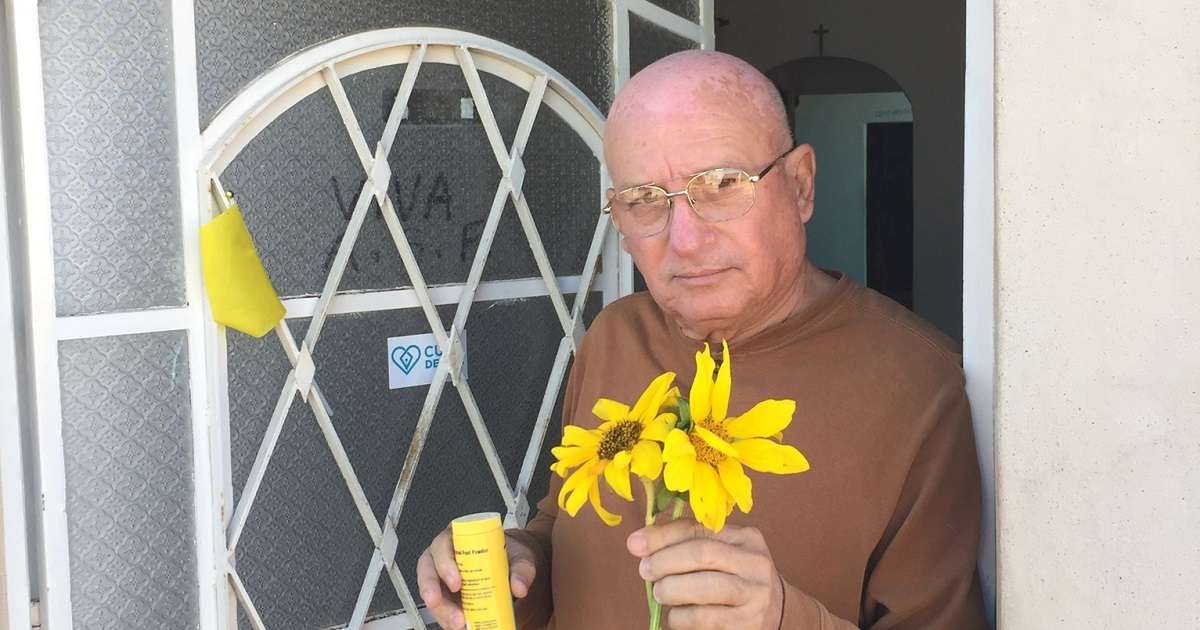
Related videos:
Cuban opposition leader Félix Navarro, one of the 11J prisoners released on Saturday, January 18, after more than four years in prison, stated that "today we are closer to the freedom of Cuba."
The prominent leader of the Party for Democracy, Pedro Luis Boitel, and Vice President of the Council for Democratic Transition in Cuba, expressed in statements to the independent media Diario de Cuba his strong belief that the freedom of the island is increasingly within reach.
"We're going to make it," he affirmed.
Navarro, who was also one of the political prisoners during the Black Spring of 2003 and later refused to go into exile, was released on parole due to his delicate health, which has been affected by diabetes and other ailments.
The decision by the regime's authorities, who instead of granting him a non-criminal license imposed this measure, has been widely criticized by human rights organizations.
Upon her release from the Agüica prison in Matanzas, Navarro expressed her concern for her daughter, Sayli Navarro, who has also been incarcerated since 2021 after participating in the protests on July 11th.
"I thought it was your voice that was going to answer the phone when I called the house," he recounted.
Sayli and Félix were sentenced for the alleged crimes of assault and public disorder following the protests of July 11, 2021, in Cuba, and he received a nine-year prison sentence.
The opposition member reported the isolation to which he was subjected, as he had access to speak with his family only once a week and under strict supervision.
"Since September 2023, they monitored my phone closely. The reeducator was always aware when my family visited me, and he didn't allow me to use it to make reports," she stated.
Navarro, 71 years old, revealed that since last Sunday he has not been taking his diabetes medication due to a lack of medicine in the prison.
"The pills ran out in prison, and since I was in that situation of isolation, I couldn't notify my family to help me resolve that issue," he explained.
He recounted that there, "The food is terrible. They had been giving us cassava for days because there was no rice, and some water with herbs. When the news about the releases was announced, rice appeared, and it improved a bit," he said.
The opposition leader also took the opportunity to denounce the inhumane treatment that some prisoners receive in Agüica prison.
He mentioned the case of Ramón Gil Tacoronte, a prisoner known as "Barriguita," who has been sleeping on the floor for months, without a mattress, as part of a punishment for an incident that occurred in December.
"They have him sleeping on the board. When they brought him in, they wouldn't return his mattress or give him a blanket; this, with the cold weather we're having," Navarro recounted.
On Saturday, January 18, Brenda Díaz, a trans prisoner sentenced to 14 years and seven months in prison for her participation in the protests of July 11, was also released.
Díaz, who has been a victim of abuse and degrading treatment due to their gender identity, was among the most vulnerable inmates in the Cuban prison system.
These releases took place in the context of Cuba's recent removal from the list of state sponsors of terrorism, as announced by the Biden Administration.
As of Thursday, January 18, 127 prisoners had been released, of which only 39 were political prisoners, reported the regime, which agreed with the Vatican and the United States to free 553 inmates.
Frequently Asked Questions about the Release of Félix Navarro and the Situation of Political Prisoners in Cuba
Why was Félix Navarro released?
Félix Navarro was released on parole due to his delicate health, affected by diabetes and other ailments. The decision to release him has been criticized, as he was not granted a conditional license, highlighting the ongoing restrictions and control of the Cuban regime over opposition figures.
What is the current situation of Sayli Navarro?
Sayli Navarro, daughter of Félix Navarro, has been imprisoned since 2021 after participating in the protests of July 11th. She was sentenced to eight years in prison for alleged crimes of assault and public disorder, in a trial that reflects the repression of the Cuban regime against peaceful demonstrators.
What complaints has Félix Navarro made about prison conditions?
Félix Navarro has reported the lack of medications, poor nutritional conditions, and inhumane treatment in the Agüica prison. These conditions have been described as an additional punishment for political prisoners and reflect the inhumane situations they are subjected to under the Cuban regime.
What has been the international reaction to the releases in Cuba?
The international community, including Amnesty International, has criticized the systematic violations of human rights in Cuba and has demanded the immediate and unconditional release of prisoners of conscience. The recent removal of Cuba from the list of state sponsors of terrorism has created a context of international pressure that has led to releases, although these do not imply full freedom for those released.
Filed under: